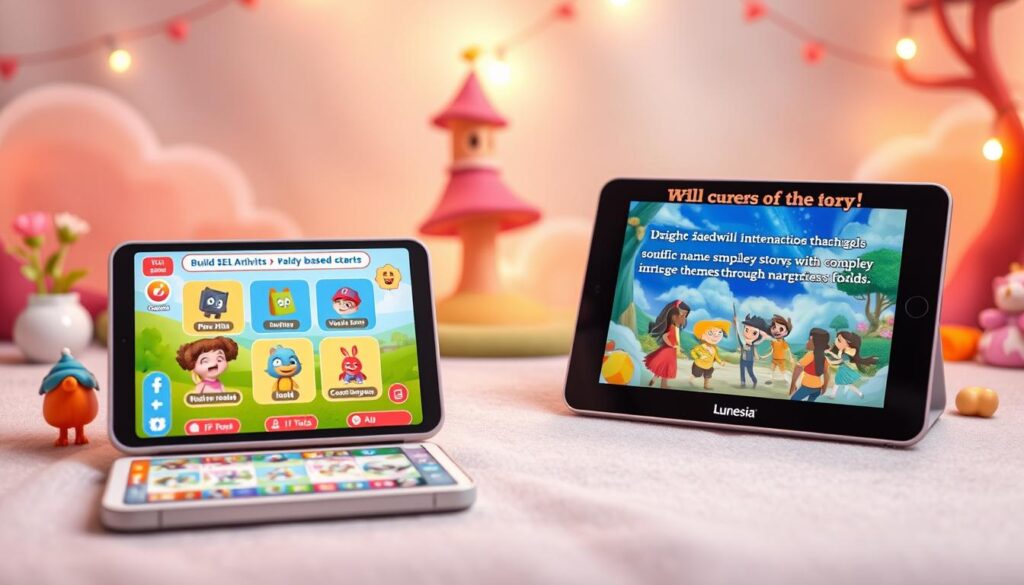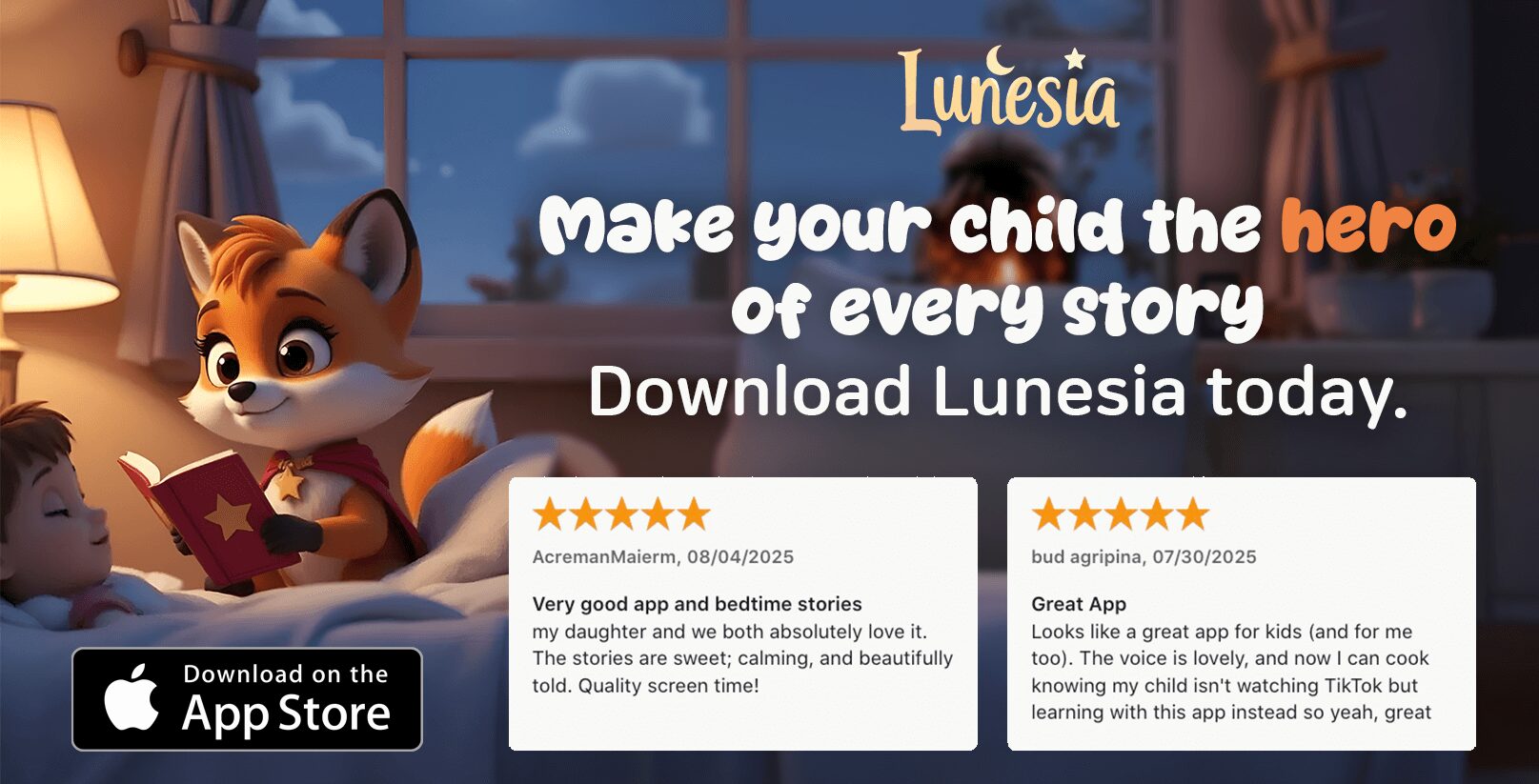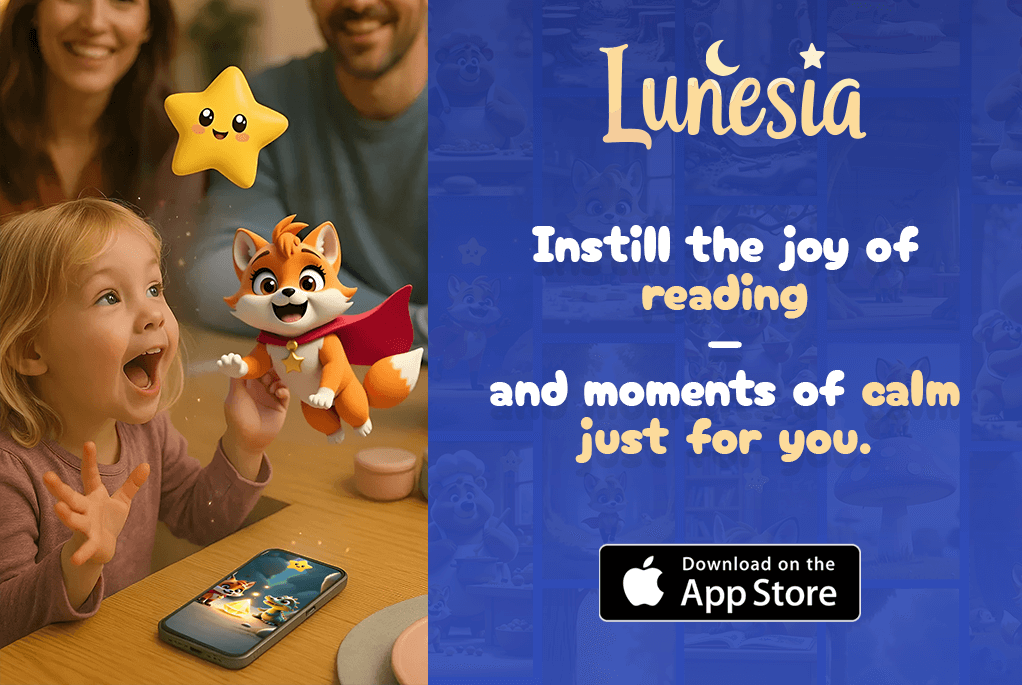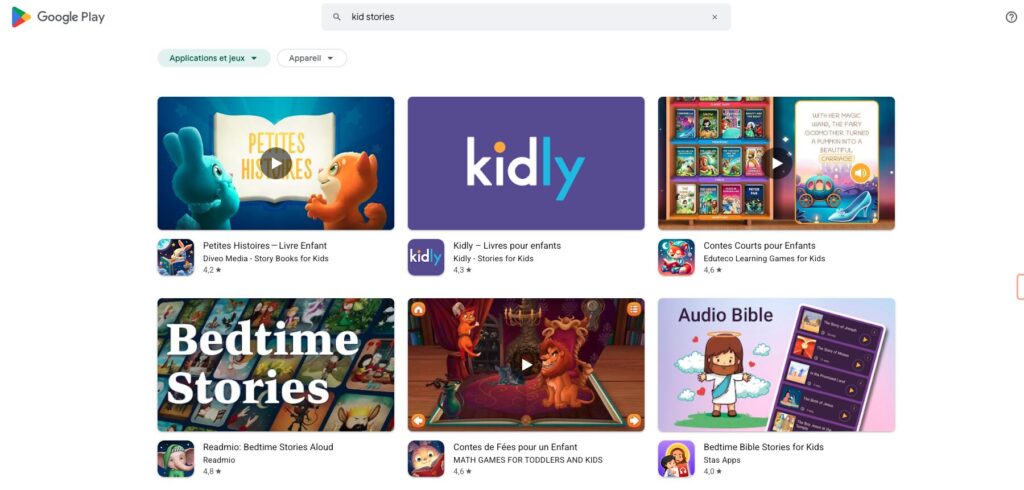As a parent and educator, I’ve seen firsthand the impact of social-emotional learning (SEL) on kids‘ development. With the growing demand for quality digital education, parents are seeking apps that teach important life skills. Two popular options are Peppy Pals and Lunesia, each representing different approaches to SEL.
Peppy Pals offers focused SEL games, while Lunesia provides broader value-based interactive stories. As a parent, it’s essential to choose an app that aligns with your child’s needs and learning style, promoting common sense and emotional intelligence.
In this comparison, I’ll share my insights on both approaches, helping you make an informed decision for your child’s digital education.
Understanding Social-Emotional Learning Apps for Children
As a parent, you’re likely no stranger to the concept of social-emotional learning, but you might be wondering how apps fit into this crucial aspect of childhood development. Social-emotional learning (SEL) is about helping kids develop essential life skills like managing emotions, empathy, and social interactions.
Quality SEL apps differ from regular entertainment apps by being intentionally designed to develop specific emotional and social competencies. For instance, Lunesia offers interactive stories that teach valuable life lessons.
| Key Components | Description |
|---|---|
| Age-appropriate content | Tailored to the child’s age group |
| Engaging storylines | Captivating narratives that draw kids in |
| Opportunities for reflection | Helping kids process their emotions and experiences |
By incorporating these elements, SEL apps like Peppy Pals and Lunesia can positively impact children’s emotional intelligence when used with common sense and parental guidance.
What is Peppy Pals?
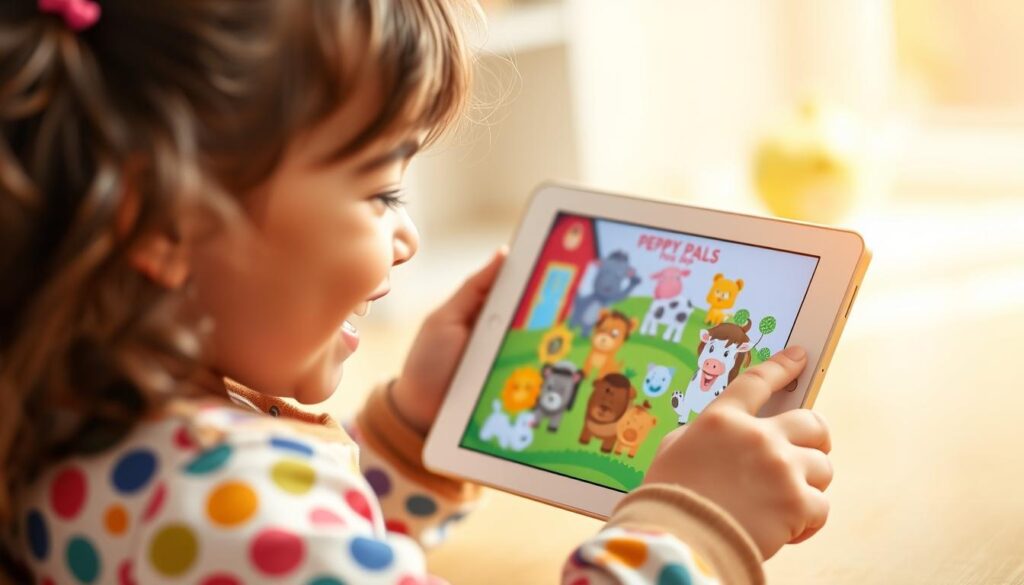
Developed with input from child psychologists, Peppy Pals is an innovative app designed to foster emotional intelligence in young children. This engaging platform features four lovable farm animal characters: a horse, an owl, a rabbit, and a dog, each with its own unique personality, strengths, and preferences.
Peppy Pals uses simple, wordless narratives to help kids recognize and understand different emotions and social situations, making it accessible to children regardless of language barriers or reading abilities. The activities within the app are designed to promote empathy development and emotional recognition, providing a solid foundation for social-emotional learning.
As a product of Common Sense Sense Media, Peppy Pals has a strong educational foundation. The app is available on multiple platforms, including iOS, Android, Amazon, and Windows, with free trial options available for parents who want to test it before purchasing.
What is Lunesia?
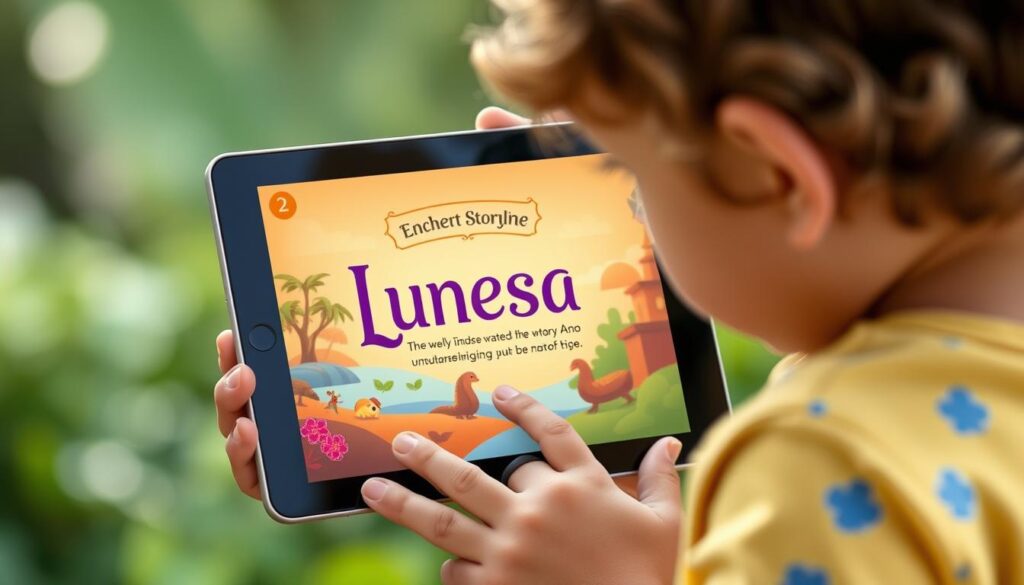
Lunesia offers a captivating way for kids to learn broader values through interactive narratives. This innovative educational app is designed to teach children a wide range of values and life lessons through engaging stories and gameplay.
Lunesia’s core philosophy differs from more focused SEL apps by incorporating a broader range of values and life lessons. The platform features a unique world with diverse characters, making it stand out in the children’s educational app marketplace.
The key features of Lunesia include interactive elements, a progression system, and adaptability to different age groups. Lunesia aims to develop not just emotional intelligence but a broader understanding of values and ethics through its rich content.
Lunesia is available on multiple platforms, with flexible subscription models for parents. It has received recognition from educational organizations and parenting groups, such as Common Sense, for its high-quality content and is often featured in reviews lists.
Core Features of Peppy Pals
Exploring Peppy Pals reveals a rich landscape of tools and activities aimed at nurturing emotional awareness and social skills in children. This app is designed to help kids develop healthy social-emotional skills through engaging and interactive content.
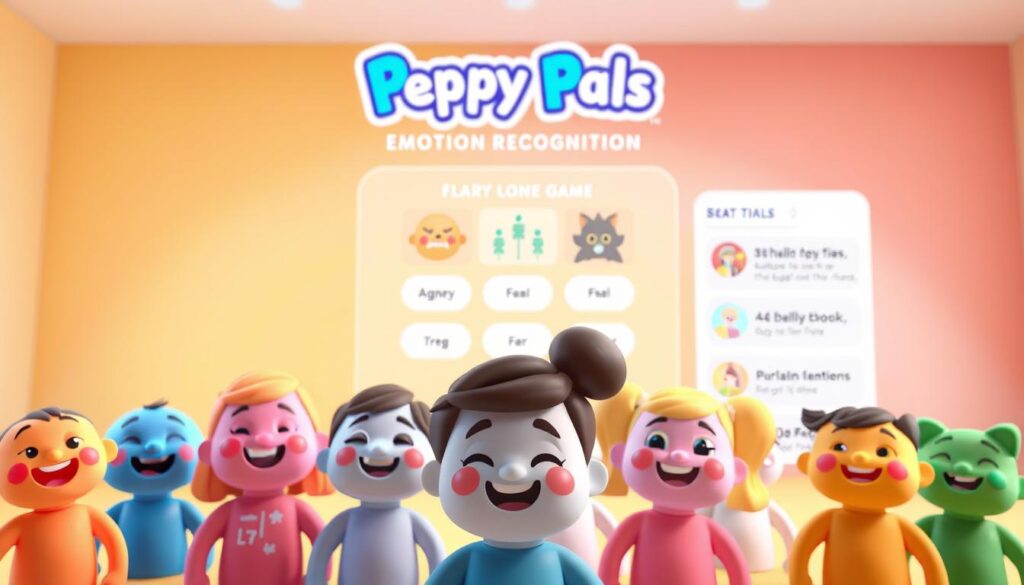
Social Skills Development
Peppy Pals places a significant emphasis on developing social skills in children. Through various interactive activities, kids learn to navigate different social scenarios, fostering empathy and understanding towards others.
Emotion Recognition Activities
The app features a range of emotion recognition activities that help children identify and understand different emotions. For instance, one activity involves selecting the emotion an animal is feeling based on its facial expression. This not only enhances their emotional vocabulary but also teaches them to recognize and respond to emotions in themselves and others.
| Activity Type | Description | Learning Outcome |
|---|---|---|
| Emotion Selection | Kids select the emotion an animal is feeling. | Enhanced emotional vocabulary. |
| Visual Cues | Activities use visual cues rather than text. | Emotion learning is accessible to young children. |
| Interactive Elements | Engaging elements to identify emotions in animal characters. | Develops empathy and emotional intelligence. |
By incorporating these activities into daily routines, parents can further reinforce their child’s understanding of emotions and social skills, creating a more empathetic and emotionally intelligent child.
Core Features of Lunesia
Lunesia stands out with its unique approach to teaching values through interactive stories. This app is designed to educate children by combining engaging narratives with interactive elements that promote active learning.
Value-Based Storytelling
Lunesia’s stories are crafted to teach important life values. The value-based storytelling approach allows children to understand complex moral lessons through relatable characters and scenarios. By reading through these stories, kids can learn about empathy, honesty, and responsibility in a engaging way.
Interactive Learning Elements
The app incorporates various interactive elements to keep children engaged. These include choice-based narratives where kids can make decisions affecting story outcomes, teaching cause and effect. Mini-games and activities within the stories reinforce the values being taught, promoting critical thinking and decision-making skills.
By leveraging the latest tech advancements, Lunesia creates an adaptive learning environment. The app adjusts its challenges based on a child’s age and previous interactions, ensuring an optimal learning experience. You can explore more about Lunesia’s features in our detailed review on Lunesia app review, and discover how it can be a valuable tool in your child’s educational journey, making it a great addition to educational game and apps for kids.
| Feature | Description | Benefit |
|---|---|---|
| Choice-Based Narratives | Stories where children make decisions affecting outcomes | Teaches cause and effect, decision-making |
| Mini-Games and Activities | Engaging tasks within stories that reinforce values | Promotes critical thinking and retention |
| Adaptive Technology | Adjusts challenges based on child’s age and interactions | Ensures an optimal learning experience |
Comparing Peppy Pals or Lunesia Values
In the realm of educational apps, Peppy Pals and Lunesia are making significant strides in value-based learning. Both apps aim to instill positive values in children, but they differ in their approaches.
Educational Philosophy Differences
Peppy Pals focuses on social-emotional learning through interactive games and character interactions. In contrast, Lunesia uses value-based storytelling and interactive elements to teach children important life lessons. While both apps share the goal of educating children, their methodologies reflect different educational philosophies.
| Feature | Peppy Pals | Lunesia |
|---|---|---|
| Core Approach | Social-emotional learning through games | Value-based storytelling |
| Interactive Elements | Character interactions, simple tap interactions | Complex decision-making, interactive stories |
| Learning Style | Explicit teaching through gameplay | Implicit modeling through stories and character development |
Implementation of Values in Gameplay
Peppy Pals uses its animal characters to model values through their interactions in various games. On the other hand, Lunesia employs interactive stories and decision-making processes to reinforce positive values. While Peppy Pals focuses on explicit teaching, Lunesia balances explicit and implicit learning methods.
Both apps cater to different learning styles and preferences among children. By understanding these differences, parents can make informed decisions about which app best suits their child’s needs.
Age Appropriateness and Accessibility
Evaluating the age suitability and accessibility of educational apps is a top priority for parents. This assessment ensures that the chosen app aligns with the child’s developmental stage and needs.
Peppy Pals Target Audience
Peppy Pals is designed for young children, with Common Sense Media recommending it for kids aged 3 and above. It focuses on social-emotional learning through engaging videos, stories, and games.
Lunesia Target Audience
Lunesia, on the other hand, is likely geared towards slightly older children due to its complex narratives and broader values. Its interactive design and adaptable content make it accessible to kids with different abilities.  Parents can assess their child’s readiness based on their individual development and interests.
Parents can assess their child’s readiness based on their individual development and interests.
| App | Recommended Age | Accessibility Features |
|---|---|---|
| Peppy Pals | 3+ | Social-emotional learning content |
| Lunesia | 4+ | Adaptable content, interactive design |
Parent and Educator Involvement
Both Peppy Pals and Lunesia recognize the importance of parent and educator involvement in a child’s social-emotional learning. By providing supporting materials and resources, these apps empower adults to reinforce the lessons learned through their interactive stories and games.
Discussion Prompts and Extensions
Peppy Pals offers a Peppy Parenting guide that provides valuable tips on introducing empathy and emotional intelligence in everyday interactions. Lunesia, on the other hand, includes interactive elements that can be extended into classroom discussions or home activities. These resources help adults engage children in meaningful conversations about social-emotional topics.
Supporting Materials for Adults
Parents can access support materials in the parents’ section of both apps. For instance, Peppy Pals allows parents to set the language to English or Swedish.  educators and parents can create a cohesive learning environment that extends beyond the app itself. Here are some tips for busy parents: prioritize discussions, use the provided guides, and engage in activities together.
educators and parents can create a cohesive learning environment that extends beyond the app itself. Here are some tips for busy parents: prioritize discussions, use the provided guides, and engage in activities together.
| Feature | Peppy Pals | Lunesia |
|---|---|---|
| Parenting Guide | 1-minute Peppy Parenting guide | Not Available |
| Language Options | English, Swedish | Multiple Languages |
| Extension Activities | Available | Available |
By utilizing these resources, parents and educators can enhance their marketing campaign efforts or simply support their child’s development more effectively.
Conclusion: Choosing Between Peppy Pals and Lunesia
Peppy Pals and Lunesia are two prominent apps that aim to foster emotional intelligence in kids, but which one is the best fit for your child? By understanding their unique approaches to teaching social-emotional skills through games and interactive stories, you can make an informed decision.
Consider your child’s age, learning style, and developmental priorities when choosing. Both Peppy Pals and Lunesia can be valuable tech tools when used thoughtfully. For kids, parental involvement is key; use the tips provided to extend digital learning into real-world conversations. Trust your instincts and apply common sense to help kids thrive.
FAQ
What is the main difference between Peppy Pals and Lunesia?
Peppy Pals focuses on Social-Emotional Learning (SEL) through games, while Lunesia uses interactive stories to teach broader values.
Are Peppy Pals and Lunesia suitable for all ages?
Both apps have their target age ranges. Peppy Pals is generally geared towards younger children, while Lunesia is also suitable for kids, but the content may vary in complexity.
How do I know if these apps are right for my child?
You can check the app’s content, reviews, and ratings on platforms like Common Sense Media to ensure they align with your child’s needs and your personal values.
Can I use these apps to help my child develop specific skills?
Yes, both apps are designed to help children develop important skills. Peppy Pals focuses on social skills and emotion recognition, while Lunesia teaches various values through storytelling.
Are there any additional resources available for parents and educators?
Yes, both apps offer supporting materials and discussion prompts to help adults extend the learning experience for children.
How can I ensure my child is using these apps effectively?
Engage with your child while they use the apps, and use the provided discussion prompts to reinforce the lessons learned.
